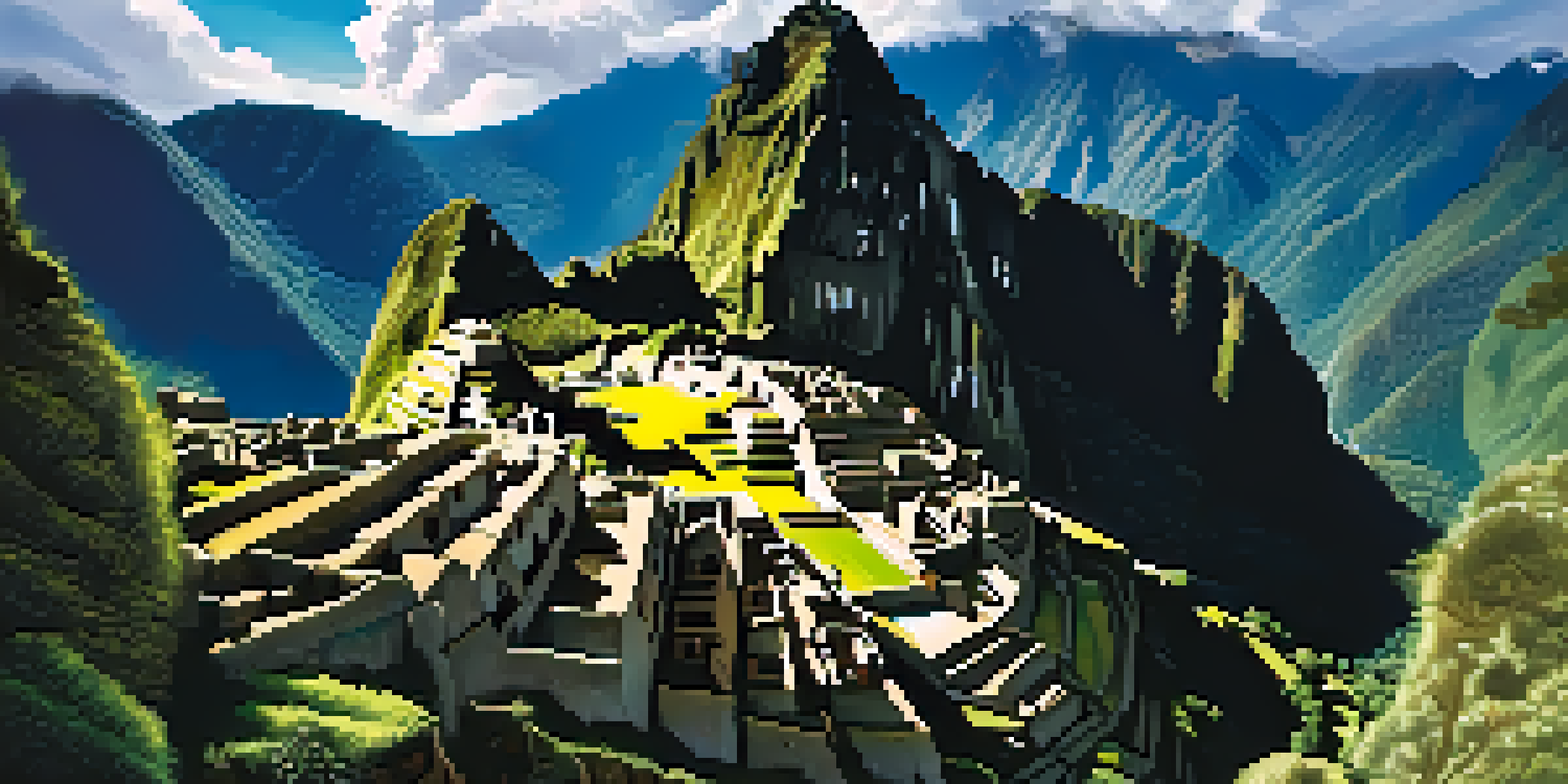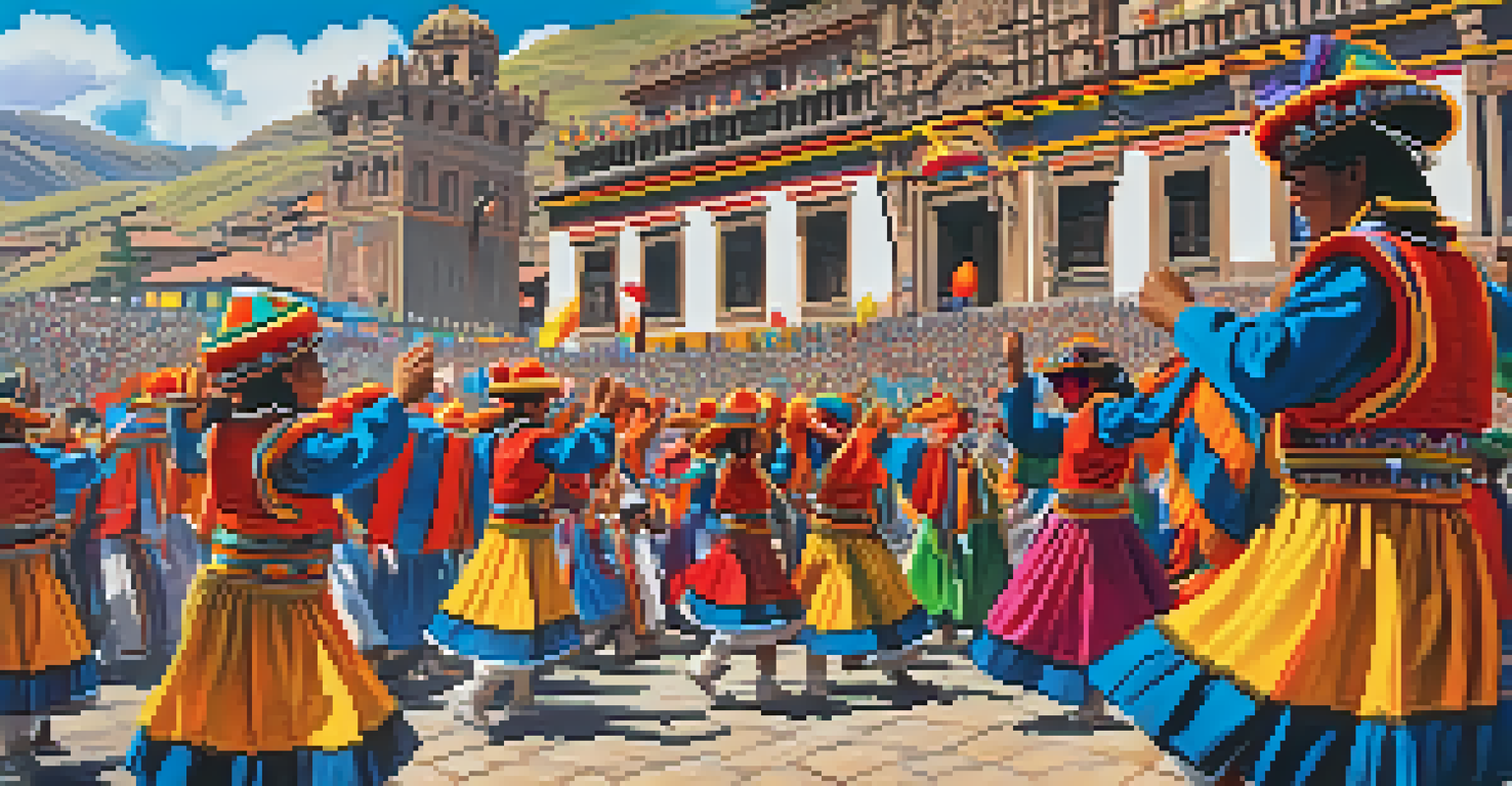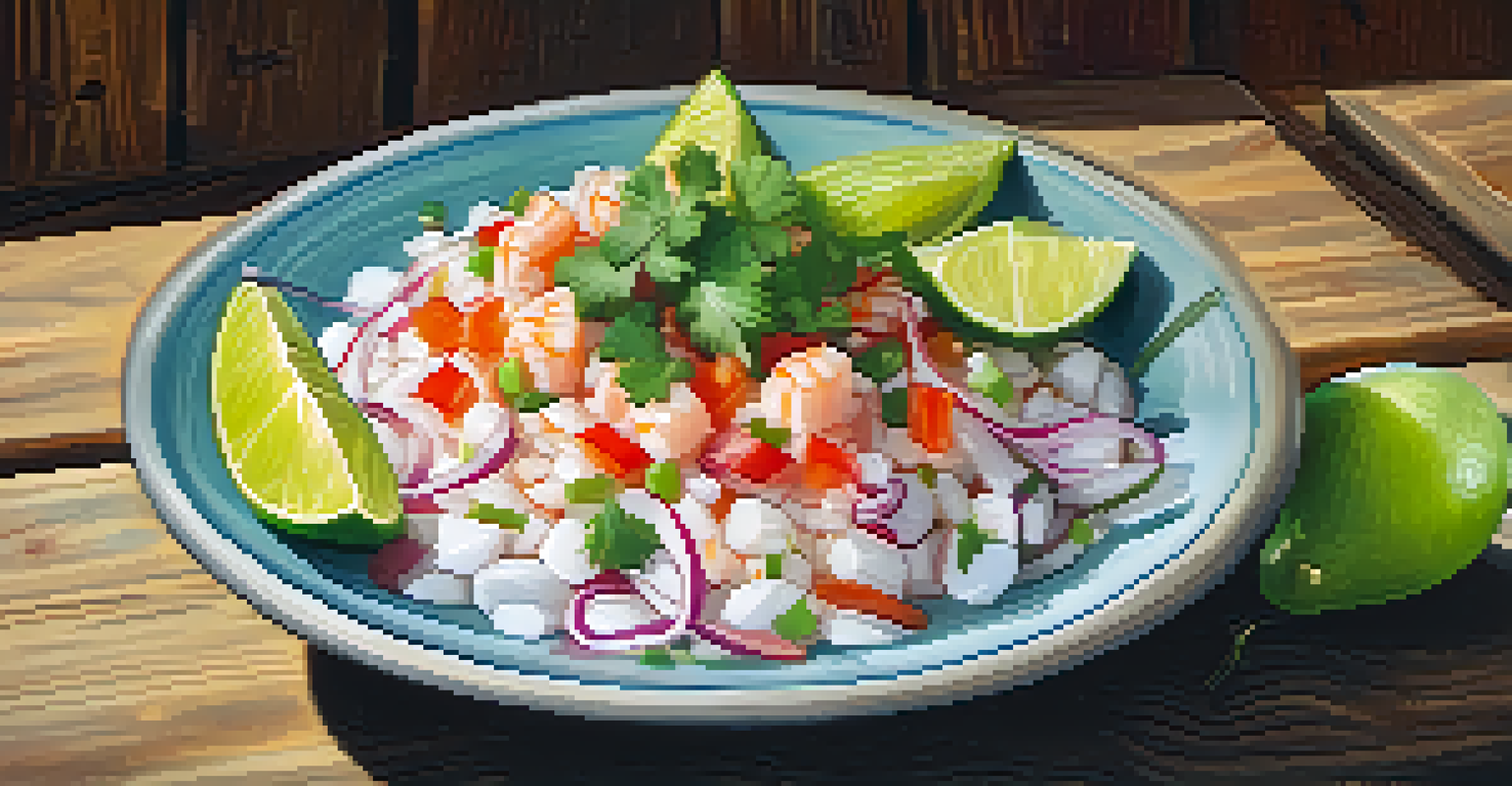Exploring How Incan Culture Influences Modern Peruvian Tourism

The Lasting Legacy of the Inca Empire on Peru
The Inca Empire, which thrived from the early 15th century until the Spanish conquest, left an indelible mark on Peru. Its rich history, monumental architecture, and advanced agricultural techniques continue to influence the country today. For instance, Cusco, once the capital of the Inca Empire, serves as a vibrant hub for tourists seeking to understand this ancient civilization.
The Inca were not only great builders but also great thinkers, their legacy continues to inspire awe and admiration.
Visitors flock to iconic sites such as Machu Picchu, which embodies the architectural prowess of the Incas. This UNESCO World Heritage site not only showcases stunning engineering but also offers a glimpse into the spiritual life of the Incas. The breathtaking landscapes surrounding these ruins further enhance the allure for modern travelers drawn to history and nature alike.
Moreover, the Inca Trail attracts thousands of trekkers each year who wish to experience the journey taken by ancient messengers. This trek is not just a physical challenge; it's a way to connect with the history and culture that shaped Peru, making it a pivotal point of interest in contemporary tourism.
Incan Traditions that Enrich Tourist Experiences
Many aspects of Incan culture are woven into the fabric of modern Peruvian tourism, creating a rich tapestry of experiences for visitors. Traditional festivals, such as Inti Raymi, celebrate the Incan sun god and draw large crowds, showcasing colorful costumes, music, and dance. These events not only entertain but also educate tourists about the enduring traditions that remain vital to Peruvian identity.

Additionally, local markets often feature traditional crafts and foods that reflect Incan heritage. Tourists can savor ancient staples like quinoa and potatoes while purchasing handmade textiles that echo centuries-old techniques. This immersion into local culture provides a deeper understanding of how Incan traditions persist and thrive in contemporary society.
Inca Empire's Influence on Tourism
The Inca Empire's rich history and monumental sites, like Machu Picchu, continue to attract tourists, offering insights into ancient engineering and culture.
Tour guides, many of whom are descendants of the Incas, bring history to life through storytelling and personal anecdotes. Their passion for their heritage enhances the tourist experience, transforming a simple visit into a meaningful connection with the past.
The Role of Archaeological Sites in Tourism
Archaeological sites are pivotal in drawing tourists to Peru, offering a tangible link to the Incan past. Locations like Sacsayhuamán and Ollantaytambo are not only stunning to behold but also steeped in history, providing insight into Incan engineering and social structure. These sites often serve as classrooms for tourists eager to learn about ancient civilizations.
To understand the present, we must delve into the past, and the Inca Empire offers a rich tapestry of history and culture that shapes modern Peru.
Guided tours at these sites frequently include discussions about the significance of the structures and the cultures that built them. This educational aspect enhances the tourist experience, allowing visitors to appreciate the complexity of Incan society beyond just the visual spectacle. The stories shared by guides often create a deeper emotional connection to the sites.
Moreover, the preservation and promotion of these archaeological treasures are vital for sustainable tourism. By maintaining these sites, Peru not only honors its heritage but also ensures that future generations can experience the grandeur of the Inca civilization.
Cuisine: Incan Influences in Modern Peruvian Food
Peruvian cuisine, celebrated worldwide, is heavily influenced by Incan agricultural practices. The Incas cultivated a variety of crops such as corn, potatoes, and peppers, many of which remain staples in modern Peruvian dishes. This agricultural heritage is a significant draw for food enthusiasts looking to explore the authentic flavors of Peru.
Restaurants now showcase traditional dishes that trace their roots back to the Incan Empire, such as ceviche and pachamanca. By incorporating indigenous ingredients and cooking methods, chefs honor the past while crafting contemporary culinary experiences. This connection to history through food invites tourists to taste a piece of Peru's heritage.
Culinary Heritage in Peru
Incan agricultural practices heavily influence modern Peruvian cuisine, with traditional dishes reflecting ancient ingredients and cooking methods.
Food tours have also emerged as a popular way for tourists to dive deeper into Peruvian culture. These experiences allow visitors to engage with local farmers and chefs, learning about the historical significance of various ingredients and cooking techniques. Such interactions create a richer understanding of how Incan culture continues to influence culinary traditions.
Incan Spirituality and Its Impact on Modern Beliefs
Spirituality plays a significant role in both ancient and modern Peruvian culture, with many beliefs originating from Incan practices. The reverence for Pachamama, or Mother Earth, remains a central aspect of life for many Peruvians today. Tourists can engage in rituals that honor this connection, such as offering coca leaves during ceremonies, creating a unique cultural experience.
Many modern spiritual practices in Peru have roots in Incan traditions, blending ancient wisdom with contemporary beliefs. Tourists seeking spiritual growth can participate in retreats or workshops that explore these themes, often set against the backdrop of breathtaking landscapes. This fusion of the past and present enriches the traveler’s experience and fosters a greater appreciation for Peruvian culture.
As visitors explore these spiritual dimensions, they often find a sense of peace and connection that transcends mere sightseeing. The opportunity to engage with local spiritual leaders and participate in age-old rituals provides a profound way to connect with the land and its history.
The Impact of Eco-Tourism on Incan Heritage
Eco-tourism has gained traction in Peru, promoting sustainable practices that honor the environment and cultural heritage. By encouraging responsible travel, eco-tourism initiatives help protect Incan sites and local communities. This approach aligns with the Incas' deep respect for nature, making it a perfect homage to their legacy.
Visitors are increasingly drawn to eco-friendly tours that highlight the natural beauty surrounding Incan sites. Activities such as hiking, birdwatching, or visiting organic farms allow tourists to immerse themselves in the landscape while learning about sustainable practices. This connection to nature enhances the overall experience, fostering a deeper respect for both the environment and Incan culture.
Eco-Tourism Supports Incan Legacy
Eco-tourism in Peru promotes sustainable practices that honor Incan heritage while benefiting local communities and protecting cultural sites.
Moreover, local communities benefit economically from eco-tourism, as it creates jobs and supports traditional crafts. The emphasis on sustainability ensures that both the natural environment and cultural heritage are preserved for future generations, allowing visitors to appreciate the Incan legacy while contributing positively to the local economy.
How Incan Culture Shapes Peruvian National Identity
Incan culture is a cornerstone of Peruvian national identity, influencing everything from art to politics. This rich heritage is celebrated in national festivals and commemorations, reinforcing the connection between past and present. As tourists explore these events, they gain insight into what it means to be Peruvian today.
The symbolism of Incan culture is evident in various aspects of Peruvian life, including architecture, music, and fashion. For example, vibrant textiles often echo Incan patterns, showcasing the blend of traditional and modern influences. Such expressions of culture not only attract tourists but also instill a sense of pride among locals.

By understanding the significance of Incan heritage, tourists leave with a deeper appreciation for Peru as a nation. This cultural exchange fosters respect and curiosity, enriching the travel experience while supporting the preservation of Incan traditions in the face of globalization.